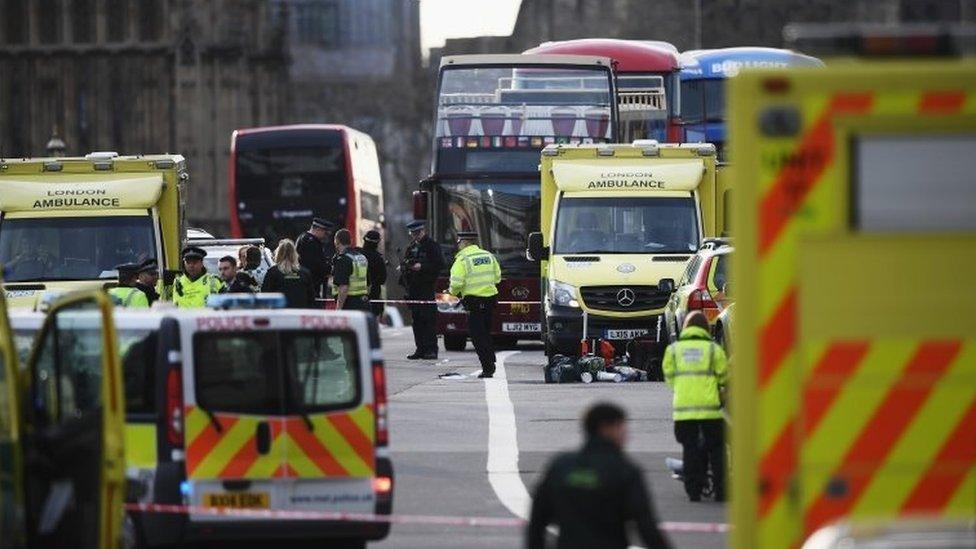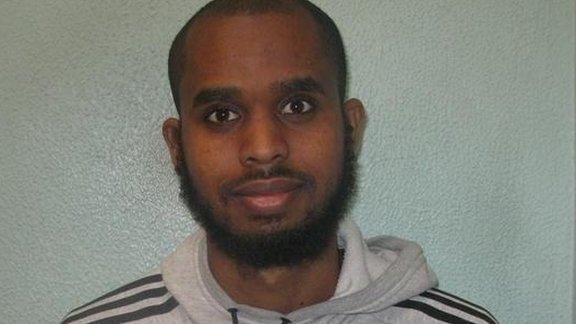Terror suspect who sparked manhunt pleads guilty
- Published

The man, who cannot be named, is a senior member of a banned terrorist group linked to the Westminster Bridge attack in 2017
A terror suspect who cut off an electronic monitoring tag and fled his home has pleaded guilty to breaching counter terror rules.
The man, who cannot be named for legal reasons, is a senior member of the banned terrorist group al-Muhajiroun.
He caused a security alert and triggered a manhunt when he absconded in September.
His actions resulted in increased checks at UK ports, causing delays for travellers.
Appearing at the Old Bailey by video link from prison, he admitted six breaches of his Terrorism Prevention and Investigation Measures (TPIM).
TPIM notices allow the authorities to monitor and control people considered to be terrorists - but who are not facing criminal charges.

What are TPIMs?
Subjects face measures such as wearing an electronic tag, curfews, relocation, bans on internet use, and limits on who they can meet and where they can go.
A TPIM can currently be imposed on a person for a maximum of two years.
Ministers are seeking to lower the standard of proof needed to impose a TPIM.
The latest official figures showed three people were the subjects of TPIMs.

On 15 September last year, the man - known as LF - cut off his tag, obtained an unauthorised mobile phone, ordered a taxi to London, and left his home in the middle of the night.
He was arrested within 24 hours.
Prosecutor Kate Wilkinson said it is "not safe to assume he was not motivated by terrorist related activity".
Judge Anthony Leonard QC said it was a "serious matter" and that he would pass sentence on 22 February.
Last week LF was one of two men who lost an appeal against the measures placed on them.
The pair were the first people to be made the subject of a TPIM for the second time.
LF is a leading radicaliser in al-Muhajiroun (ALM), an outlawed organisation that has been linked to multiple attacks and plots, including at Fishmongers' Hall in 2019, Westminster Bridge in 2017, and the murder of Fusilier Lee Rigby in 2013.
He was an associate of Khuram Butt, the ringleader of the London Bridge attackers who murdered eight people in June 2017.
In 2019 LF was convicted of breaching his first TPIM, but was handed a suspended sentence by a judge at Kingston Crown Court.
Following this, he continued to engage with other ALM members and was subsequently placed under the new measures in November that year after he was found to be involved in fresh "terrorist related activity".
In the years after TPIMs were first introduced in 2011, two subjects absconded and fled abroad.
One hid beneath a burka and fled a mosque. Another, like LF, absconded by ordering a taxi.
Related topics
- Published11 February 2021

- Published8 November 2013

- Published8 January 2013
